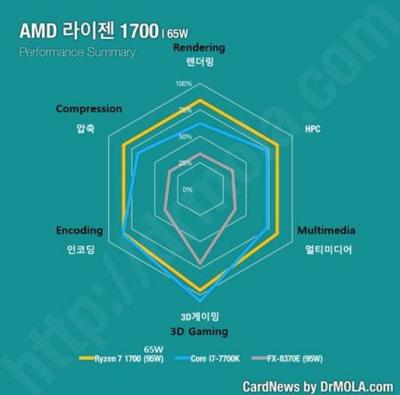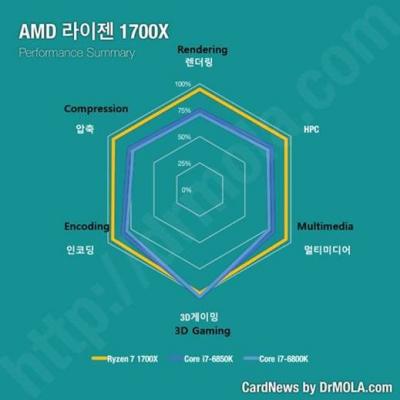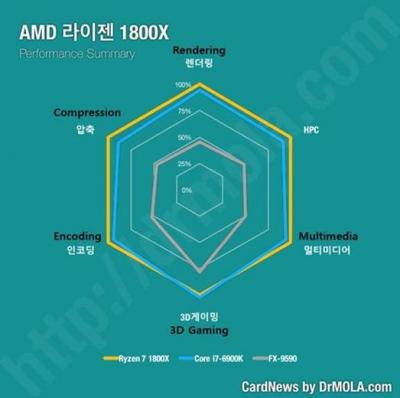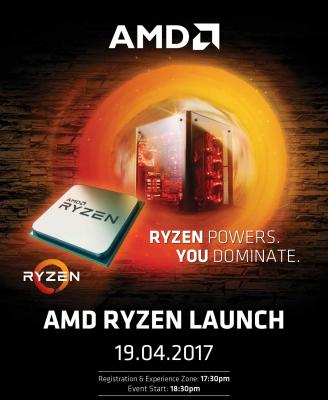Some people are still not getting the point - I am referring to both AMD and Intel camps.
7700K is an obvious winner for gaming-only cpu. Before down putting Ryzen, Intel camp also need to realize that 7700K also game better than their more expensive 6900K and 6800K. In multi-threaded applications and synthetic benchmarks, R7 matches well with Intel HEDT system, but still loose at gaming. Why? It's all about the clockspeed.
This is the day of GPU being the main performance defacto of your system and gone are the days when
MMX and
3D Now were the in-thing. You need a fast enough cpu to feed data to the gpu back and forth.
In gaming, raw clockspeed still has the most advantage in today's games. Ryzen did not lose to Skylake or Kabylake because of IPC, it's because of clockspeed. The gap in clockspeed is significant that extra cores do not give much advantage to overall performance. We can see the 1080p gaming comparison video by Joker Production (Youtube) where the 1700 while utilizing all-cores, the load is very low which means the games are not taking full advantage of the extra cores (a.k.a lazy cores).
What if Ryzen has the exact same clock speed as Skylake/Kabylake? But of course it's not the current situation here because it is hard for an 8-core Ryzen to match the clock of Kaby even with watercooling. But at 3.9GHz overclock, the performance is near to Intel 5ghz. The problem now is that with its base clock, some reviewers are reporting that Ryzen has issues with boost clock. Hardware Unboxed claimed that their 1800X is somewhat stucked at 3.7GHz on his Asrock Taichi board. And I have yet seeing any reviewer that actually analyzes how the boost behavior is on Ryzen. How many active cores are at specific boost clock?
It was different with the old Bulldozer architecture when its high clockspeed was not an advantage due to the FPU resource sharing. In layman's term you can say the performance of clockspeed advantage is cut into half (not literally).
There was another argument regarding gaming resolution. In real world, those with 4K monitors and capable GPU will game at resolutions higher than just 1080p. At 4K the cpu advantage is diminished. 1080p testing is only relevant ONLY IF you want to measure the cpu performance. 7700K wins, hands down, but is it an ideal real world situation? No. If we're being practical... if you have a 4K capable system you will game at 4k, not 1080p. 1080p testing is only if you're stucked with 1080p monitor and it's capable of outputting very high refresh rate. Otherwise, it just serves another bench and bragging right. At 4K gaming and very high end GPU, even the old FX can perform as well as the newer generation CPUs.
This is just some of my thoughts at the moment, will write again later once I have more ideas.
Very good explanation there bro. Great !



 Feb 28 2017, 06:29 PM
Feb 28 2017, 06:29 PM
 Quote
Quote





 0.0336sec
0.0336sec
 0.41
0.41
 7 queries
7 queries
 GZIP Disabled
GZIP Disabled